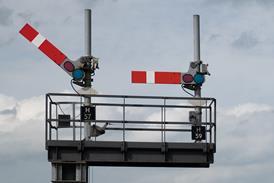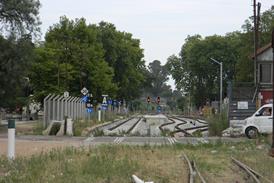INTRO: As train operators seek to reduce whole-life costs and improve reliability, they are increasingly contracting out responsibility for their rolling stock
MAINTENANCE AND support services are becoming a crucial factor as competition starts to spread through the rail sector. Around the world, deregulation and privatisation are forcing both existing and new train operators to focus primarily on the commercial, operational and marketing aspects of their business.
In part, this change is being driven by the European Union’s vision of a deregulated rail sector, first outlined in Directive 91/440 and introduced progressively from 1993 (RG 1.05 p25). As the railway operating business becomes more and more complex, operators are looking to outsource many aspects of the work traditionally undertaken by an integrated railway organisation, both to improve their operating efficiency and to drive down costs.
Deregulation and a focus on customer service is also driving investment in modern rolling stock, with high capital costs and increased technical complexity. Given the relatively long service life of such vehicles compared to short operating contracts or franchise concessions, many of these vehicles are being funded through banks and leasing companies. These two trends have encouraged a move to outsource the supply and maintenance of new and existing trains to specialist firms and in many cases to the manufacturers.
Servicing and maintenance contracts can range from maintenance support, where the manufacturer provides on-site technicians to advise the operator’s own depot staff, through the provision of spares and full maintenance and repair agreements, to complete train service provision. Here the contractor must provide sufficient trains each day to meet the operator’s requirements, taking full responsibility for procurement, servicing, maintenance and availability.
Today the three major systems integrators are responsible in one form or another for maintaining more than 15000 vehicles in over 20 countries. They have all set up their own specialist train servicing business units, and in some cases established local subsidiaries to manage specific contracts. Investment in purpose-built depots designed for rapid component replacement has shortened the time needed for routine servicing and repairs, contributing to improved availability levels.
At the same time, intelligent trains with built-in fault diagnosis are enhancing preventative maintenance and providing valuable service experience which the manufacturers can feed back into their future designs. n
Suppliers take on the maintenance challenge
As train operators seek to reduce whole-life costs and improve reliability, they are increasingly contracting out responsibility for day-to-day maintenance of their rolling stock; today the major suppliers are maintaining more than 15000 vehicles in over 20 countries. Purpose-built depots designed for rapid component replacement have shortened the time needed for routine servicing and repairs. Intelligent trains with built-in fault diagnosis are enhancing preventative maintenance and providing valuable feedback which can be fed into future designs.
Les fournisseurs s’emparent du défi de l’entretien
Tandis que les opérateurs de services ferroviaires cherchent à réduire, sur la durée de vie, les coûts, ils externalisent de plus en plus la maintenance au jour le jour de leur matériel roulant; aujourd’hui, les principaux prestataires ont en charge l’entretien de plus de 15000 véhicules dans plus de 20 pays. Des ateliers sur mesure conçus pour le remplacement rapide de composants ont raccourci le temps nécessaire à la maintenance de routine et aux réparations. Des trains intelligents, avec dispositifs d’aide au diagnostic installés dès la construction, accroissent les possibilités de maintenance préventive et procurent un retour d’expérience valable qui peut être pris en compte dans les futurs concepts
Anbieter nehmen die Unterhalts-Herausforderung an
Bei ihren Bemühungen die Lebenszykluskosten zu verringern und die Zuverlässigkeit zu erh




















